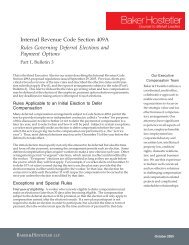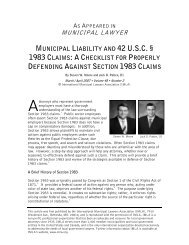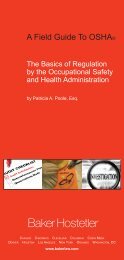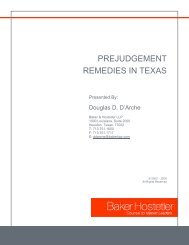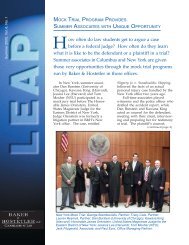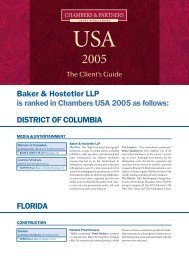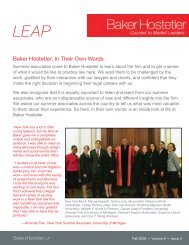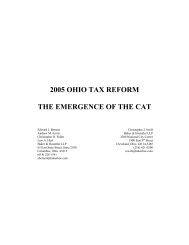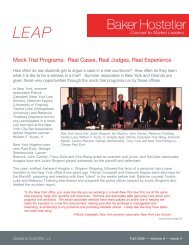The Charity Care Requirement for Hospital Property Tax Exemptions
The Charity Care Requirement for Hospital Property Tax Exemptions
The Charity Care Requirement for Hospital Property Tax Exemptions
You also want an ePaper? Increase the reach of your titles
YUMPU automatically turns print PDFs into web optimized ePapers that Google loves.
<strong>The</strong> trial court found that ‘‘[s]services provided to private<br />
pay[ing] patients . . . are simply not charitable services . . .<br />
.’’ Both the town and the court seem to equate the term<br />
‘‘charitable’’ with ‘‘free,’’ and conclude that the<br />
acceptance of private paying patients renders the Center’s<br />
purpose not exclusively charitable. We do not agree. <strong>The</strong><br />
trial court’s conclusion that merely charging a fee to those<br />
who have the means to pay renders the Center’s purpose<br />
not exclusively charitable is not in keeping with our<br />
precedents, and is belied by the realities of the modern<br />
health care system.<br />
This court never has held that accepting payment or<br />
charging a fee, without more, alters the character of a<br />
charitable or otherwise tax-exempt organization. In Yale<br />
University v. New Haven, 71 Conn. 316, 42 A. 87 (1899),<br />
we declared what common sense requires: ‘‘A church is<br />
none the less a church, because the worshippers contribute<br />
to the support of services by way of pew rent. A hospital is<br />
none the less a hospital, because the beneficiaries<br />
contribute something towards its maintenance. And a<br />
college is none the less a college, because its beneficiaries<br />
share the cost of maintenance . . . .’’ Id., 328. Likewise, a<br />
charitable, nonprofit nursing home is no less charitable<br />
simply because some patients pay <strong>for</strong> all or part of the cost<br />
of their care.<br />
Ultimately, the Court denied exemption because of a deviation between the Center’s<br />
charter and its activities. (<strong>The</strong> Center provided rehabilitative care, which was an activity<br />
that was found not to be set <strong>for</strong>th in its charter as one of its charitable purposes.)<br />
Presumably the Center can secure an exemption by amending its charter or limiting its<br />
rehabilitative care program. In any case, the Court’s analysis of the effect of private pay<br />
<strong>for</strong> the services rendered differs from the approach taken by the Illinois appellate court in<br />
Provena. <strong>The</strong> Court in St. Joseph’s applied an analysis of the overall nature of the<br />
activities of the property owner in contrast to an analysis of one factor--the amount of<br />
free or discounted care.<br />
IV.<br />
Charitable Exemption <strong>for</strong> Medical Facilities in Other States<br />
A. Case Law<br />
1. Utah—Intermountain Health <strong>Care</strong><br />
In 1985, the Supreme Court of Utah rendered a decision that has been influential<br />
thereafter. Utah County v. Intermountain Health <strong>Care</strong>, Inc. 709 P.2d 265 (Utah 1985).<br />
10



